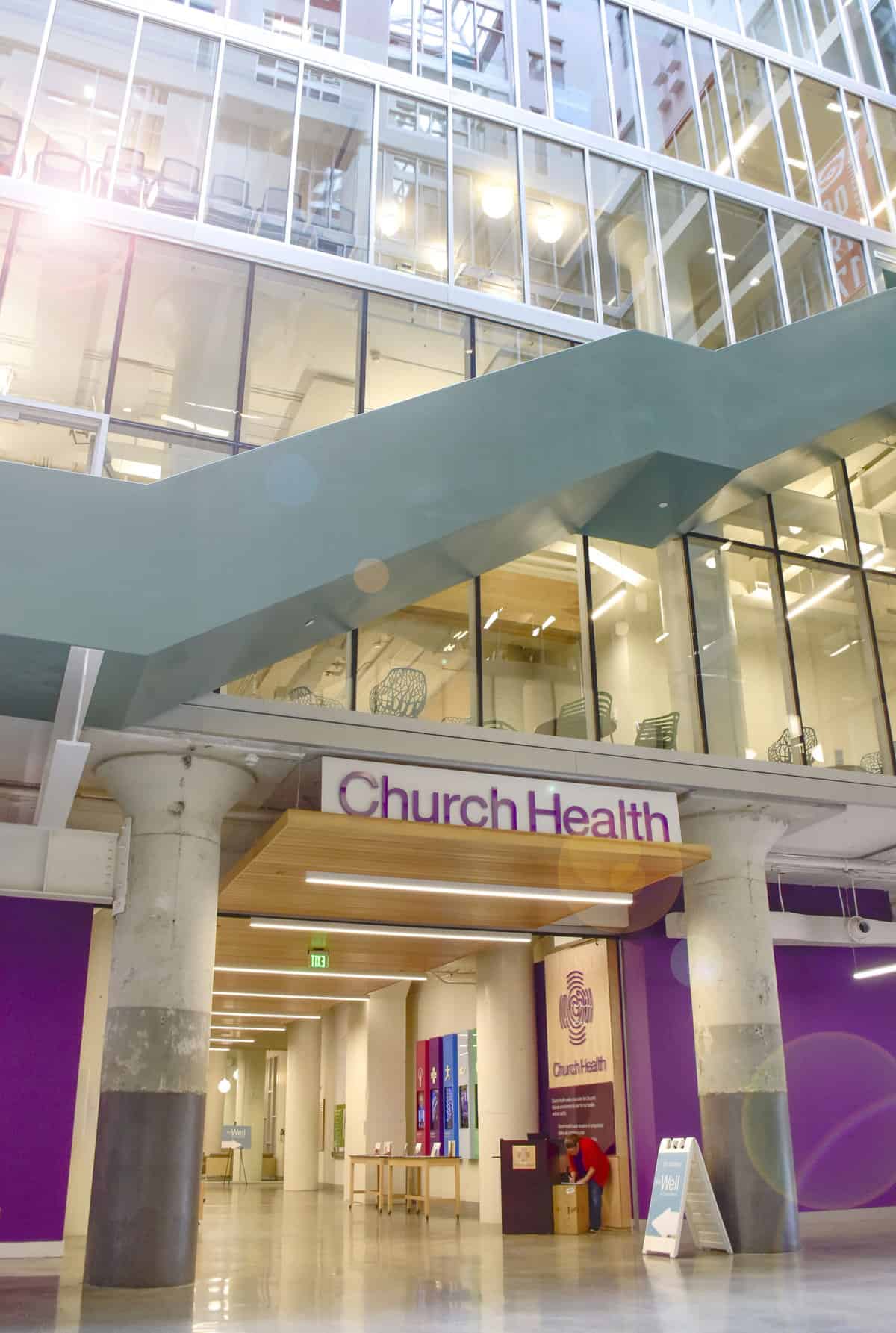
From the time he was a young teenager, Scott Morris felt the call to serve God through the church. “But the thought of preaching 52 sermons a year sent shivers down my spine,” Scott says. Having thus ruled out the pastorate, Scott nevertheless decided to attend seminary. While there, he began to sense that perhaps God was calling him to serve in a different way.
“I read the Bible,” Scott recalls, “and I couldn’t help but notice everything in there about healing the sick. It is on every page.” But when he looked at the churches around him through this lens, he wasn’t satisfied with what he saw: “We pray for people on Sunday morning, the pastor is expected to visit people in the hospital, a few people visited the shut-ins, and that defined our healing ministry.”
This wasn’t always the case. Historically, the church has at times been at the forefront of the healing arts. In the early Middle Ages, the primary hub of medical care and scientific discovery was the Christian church. The twinning of faith and healing—caring for the soul and the body—is woven throughout the story of our faith. “We have this history; we’ve just forgotten it,” Scott says. “We build large hospitals that have church names on them, but they have absolutely nothing to do with worshipping congregations.”
Scott was determined to find a better way.
We have this history of caring for the soul and the body; we’ve just forgotten it.
After spending three years studying the church’s engagement with healing from both a historical and theological perspective, Scott was in the chaplain’s office at Yale School of Medicine, and saw a pamphlet on the chaplain’s desk that said “How to start a church-based health clinic.”
“And I go, ‘That’s it!’” Scott says. “That is what I want to do.”
“It was either that or pitch for the Atlanta Braves,” he chuckles. “And they never called me.”
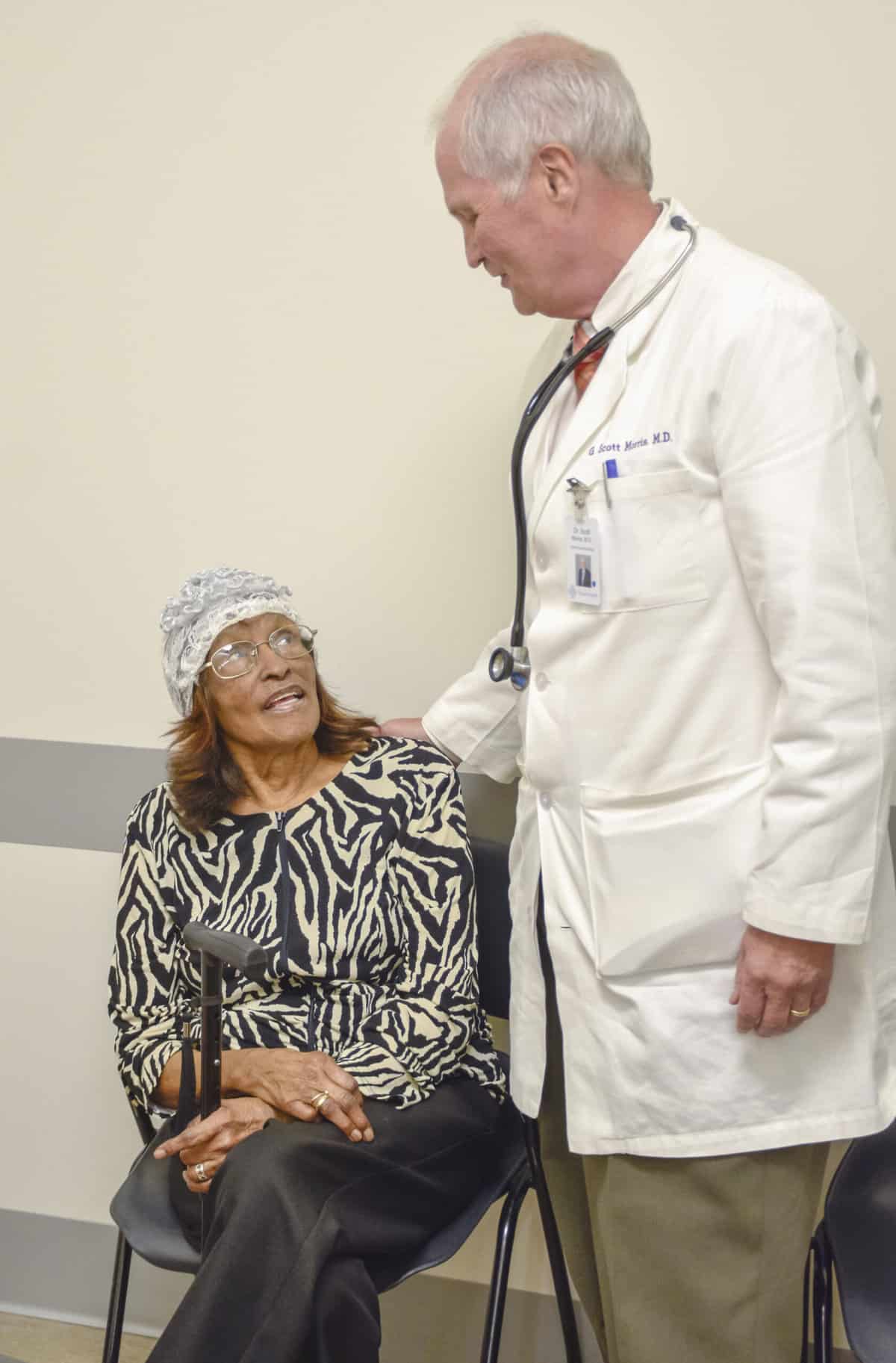
So following seminary, Scott went to medical school, meeting people and learning along the way that others cared about the church’s relationship with health, too. Upon graduation, looking for a place to start his dream and build a church-based health clinic, Scott read that Memphis, Tennessee was the poorest major city in America.
And that was all it took for Scott to move to Memphis. “I was 33 years old,” he says. “I was too young and too dumb to realize that what I wanted to do had no chance to succeed.”
That was 1987. Now, just over 30 years later, Scott’s dream is not only surviving but thriving—as an organization named, aptly enough, Church Health.
At its inception, Church Health offered medical care to twelve people. Today, Church Health provides comprehensive healthcare for over 70,000 uninsured individuals. With a staff of 19 providers and a network of 1,000 more who volunteer their time and expertise, “There’s no problem we can’t take care of, cradle to grave.”
Church Health operates on a sliding fee scale, based on income. “People aren’t looking for a handout,” Scott stresses. “They’re looking for something they can afford.”
Memphis has a growing Spanish-speaking population, and 50% of the people who come to Church Health speak Spanish. Scott recalls the story of one such young man, an undocumented individual who had been brought to the United States from Honduras at the age of four. Now 19, he had begun having seizures almost as soon as his family arrived in the country, at a rate of two to three seizures per week. Recently, his seizures had increased to the point where he was having five or six a day, every day. His mother heard about Church Health, and brought him in.
“Can you imagine being his mother?” Scott asks. “He’s had seizures for the last fifteen years. And that day was the first time she could take him to a doctor.” This young man will now receive the treatment he needs, and the doctors at Church Health will take care of him and address and control his seizures as best as they are able, “and treat him no differently than if he was the president of a bank. Because that’s what we think the church should be doing.”
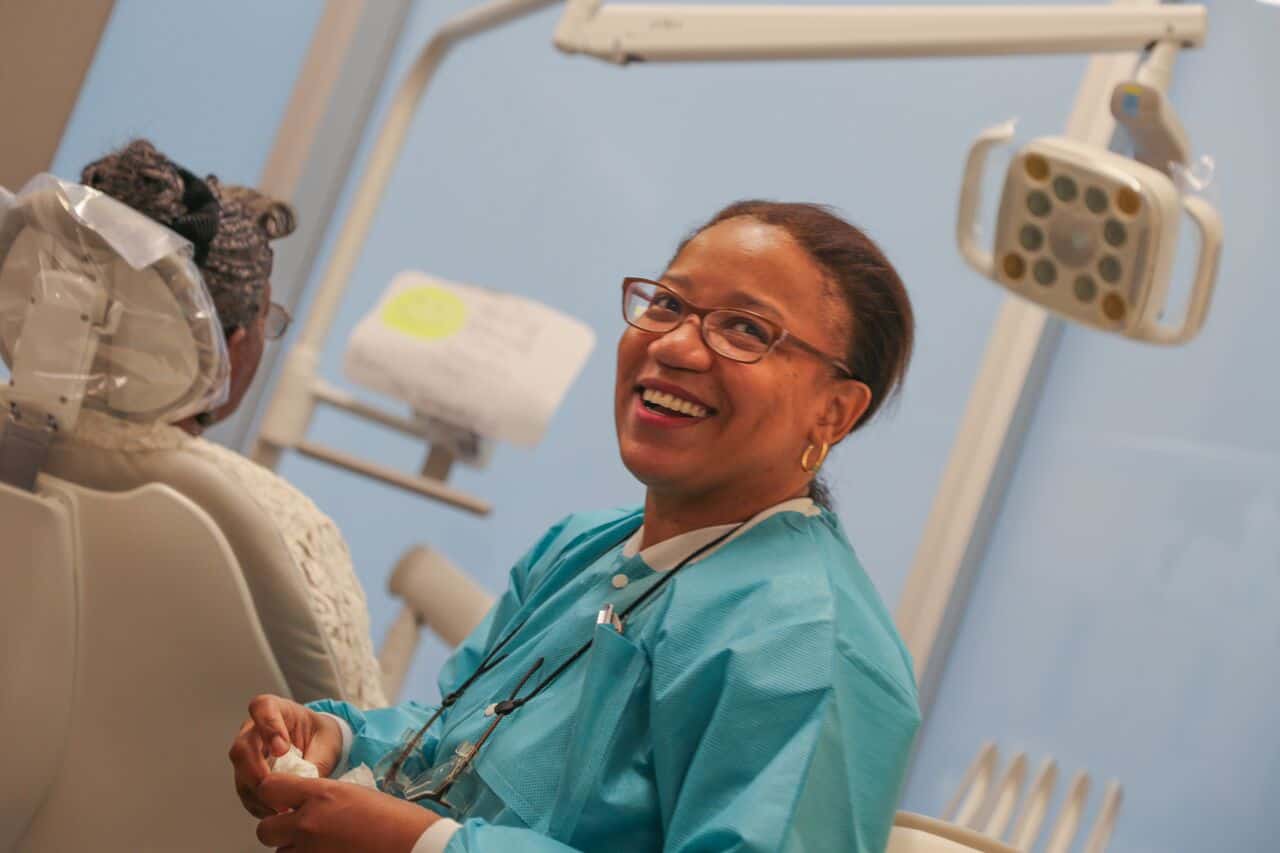
Another aspect of medical care that Church Health addresses is that of dental care. “In the 2,500 pages of the Affordable Care Act, the words ‘adult dentistry’ do not appear,” Scott says. Yet dentistry is a significant economic issue, and a barrier that often prevents people from moving from a minimum-wage job to a better-paying job. Without proper dental care, individuals are out in the world at a constant disadvantage: “Fixing teeth not only puts a smile on people’s faces and improves self-esteem, it can have a direct correlation to that individual’s ability to get a better job, a job that provides health insurance.”
Scott remembers a man who came to Church Health having been unable to afford dental care and had super-glued his teeth together in a desperate attempt to solve his dental problems himself. He didn’t realize that the chemicals in the super glue would eat away at his tooth enamel, and by the time Scott saw him, his teeth were in significantly bad shape. “This is immoral,” Scott says. “This is something the church ought to care deeply about. But we don’t.” To help right this wrong, Church Health now boasts one of the largest freestanding dental clinics in America.
But the Church Health model doesn’t end with just medical and dental services. Their model for holistic, whole-person care is based off of a passage in Colossians 3: “Therefore, as God’s chosen people, holy and dearly loved, clothe yourselves with compassion, kindness, humility, gentleness and patience…and over all these virtues put on love, which binds them all together in perfect unity.” The Church Health Model for Healthy Living, Scott says, encompasses seven things: health, faith, movement, nutrition, emotion, family and friends, and work. All seven are equally important and must be in balance.
It’s very easy to just focus on the medical aspect of our work, but what we’re really trying to do is live out the Gospel.
“It’s very easy to just focus on the medical aspect of our work, but what we’re really trying to do is live out the Gospel,” Scott says. He cites Plato’s view of mind/body dualism—the idea that we are separate parts dust and breath—as a “fundamentally non-Christian idea.” Human beings cannot simply be broken down into component parts, with separate entities caring for our health, our faith, our other needs, and have no communication between those caregivers. We are created whole, in God’s image, and should be treated as such.
Nutrition is a particular focus in the work that Church Health does. “If you want to know how to eat, it’s really not that complicated,” Scott observes. “You should eat the way Jesus ate.” What does this mean? Locally grown, fresh food that is eaten in community with others. To this end, Church Health hosts a demonstration kitchen, where people can come and learn healthy eating habits and how to prepare the foods that are good for them.
The demonstration kitchen has two primary objectives: first, teaching people how to cook and how to coordinate nutrition with their medical care; and second, addressing food insecurity. Take, for example, a 28-year-old mother, working two jobs, and trying to feed her kids. “She needs fresh fruits and vegetables. But if the plan is, give her fresh fruits and vegetables and tell her to go home and spend an hour and a half cooking, there is a 100% chance that will not work.” We have to do more than that, Scott stresses. “We have to make sure not only that she has access to fresh fruits and vegetables that she can afford, but we also have to ensure she has a way to prepare those fruits and vegetables in a reasonable period of time. And, we have to find a way to get her three-year-old to want to eat broccoli.” To tackle this last hurdle, Church Health offers programs with names like Alphabet Appetite to educate the youngest (and often pickiest) eaters about nutrition in fun and engaging ways.
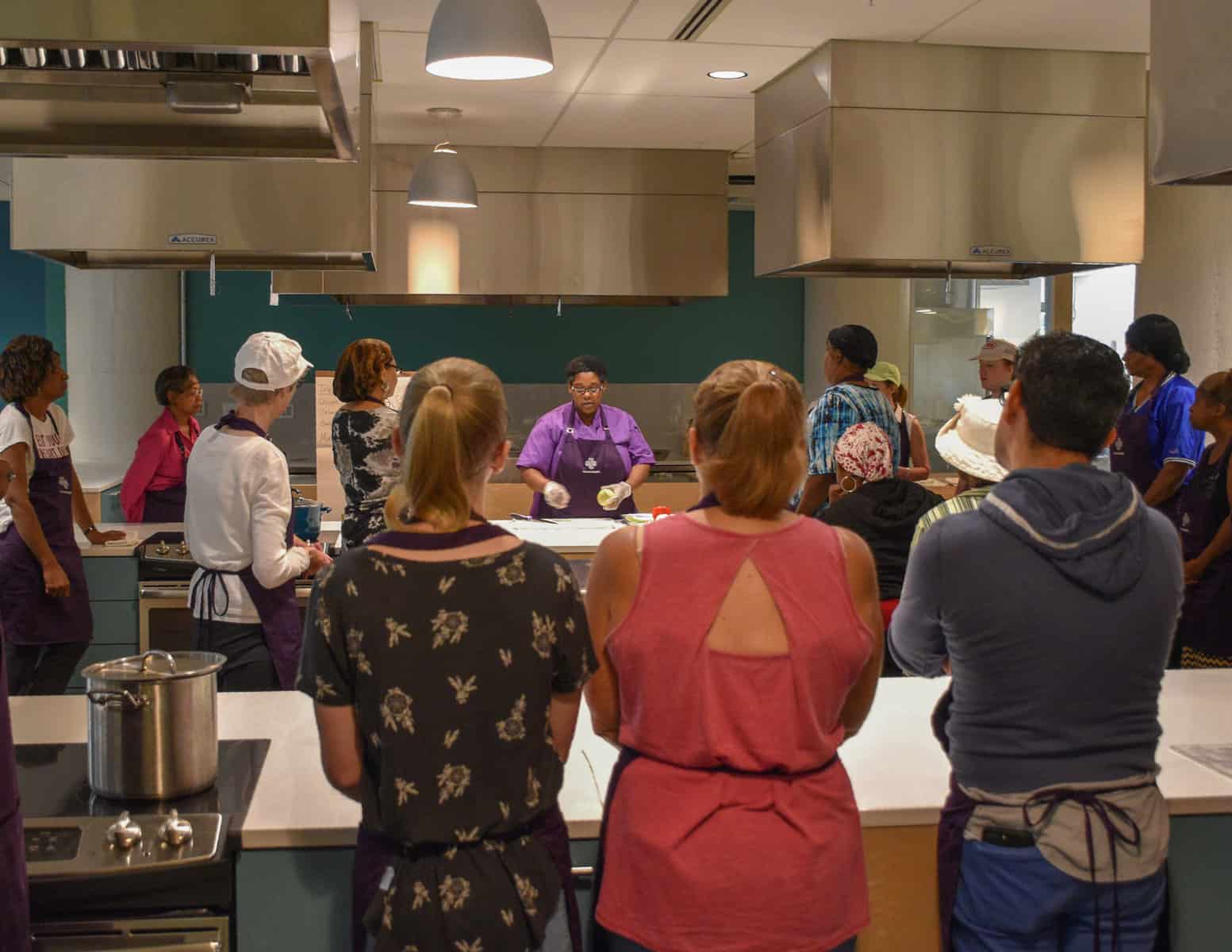
Church Health addresses each of these issues simultaneously, providing a comprehensive nutrition program that won’t be derailed through lack of time, lack of access to quality, affordable foods, or lack of interest on the part of small children to eat those foods. It needs to go beyond just community gardens. And if these programs can work in Memphis, Scott believes, they can work anywhere.
Another focus is movement: “Jesus walked everywhere he went,” Scott asserts. “Our bodies were made to move.” And that movement cannot just be about sports—we need to find other ways to creatively engage children. To meet this need, Church Health runs a dance and movement studio, offering a variety of dance classes, yoga, and Pilates for everyone from toddlers to seniors. Their hip-hop dance classes are particularly popular, Scott notes—and while hip-hop might not be his personal preferred method of staying active, it’s clearly meeting a need in the community.
If these programs can work in Memphis, they can work anywhere.
Church Health runs a preschool, called Perea—named for the place where Jesus instructed his disciples to let the little children come to him. Currently serving 172 children, Perea has plans to grow into an elementary school. With teachers working alongside healthcare providers to address the needs of the whole child, “If you got to Perea,” Scott says, “we’re also going to be your children’s doctor. We’re going to be your family doctor. We’re going to make sure Mom has prenatal care if she has another child; we’re going to deliver the baby. And then we will care for that child for the next 18 years.”
To accommodate all of their various programs, Church Health recently consolidated operations in thirteen separate buildings and relocated to what was once the regional distribution and retail center for Sears, Roebuck and Company, a move that enables the practice of holistic care under a single roof. At 1.5 million square feet—the same size as the Empire State Building—Crosstown Concourse is the epitome of a vertical urban village. Centered on health, education, and the arts, the building also houses offices, retail space and even apartments, with a dynamic community of tenants and residents. “Teachers, artists and doctors, living together in the same building!” Scott effuses. “Working together to solve all our problems.”
“And that,” Scott concludes, “is a better mousetrap.”
Comprehensive healthcare is the way to grow the church, Scott believes. “We are trying to make happen what is possible in God’s imagination.”
This vision is shared by everyone who works for Church Health. Andreana Smith, director of the Healthcare Advisory Team, credits Scott’s leadership and vision for the success of Church Health. Currently serving as president and CEO, Scott also works in the clinic every week, in urgent care. “You don’t always see that in an organization,” Andreana says. “Your head person working with the people.”
Andreana also points to their massive network of volunteer providers as the backbone of the clinic.
“When people call us, and they ask us, ‘How do you do what you do?’ we say we can’t do it without our network of volunteer providers,” she says. “Specialists, hospitals, labs, diagnostic centers…that is the thing that makes us so unique.”
“It all comes from a conviction that as believers, it is our call, from Jesus, that we take care of people,” Andreana continues. “We heal the sick. Not only physically, but spiritually and mentally. We walk alongside people to make sure that they’re okay. We believe this is what we are called to do.”
“Our tagline is ‘Care for One Another,’” Andreana concludes. “As Christians, we are commanded to love our neighbors as ourselves. It’s about loving your neighbor. And no matter what your profession, if you can extend a hand, and love someone, and care for someone, that’s what we’re all here for.”
As Christians, we are commanded to love our neighbors as ourselves. And no matter what your profession, if you can extend a hand, and love someone, and care for someone, that’s what we’re all here for.
Alison Futris, Communications Manager, agrees. “We’re much more than our clinic,” Alison says. “My favorite part about working here is walking into our building and visiting with the people we serve, because it makes you realize how much you’re helping this community.”
Church Health employees stress that this model isn’t just for Memphis. Church Health also runs a training program for parish nurses known as the Westberg Institute—whose curriculum is currently being used in 148 nursing schools around the world—and a Congregational Health Promoter program that takes place several times each year to train laypeople to foster health ministries within their own congregations. And for those who feel God’s call on their hearts to start a church-based health center of their own, Church Health has partnered with Empowering Church Health Outreach (ECHO) to train and equip people to start their own ministries based on the Church Health model.
“God has a vision of us living a life well-lived,” Scott says. “Being healthy is about helping people achieve that life well-lived. Paul says we see through a glass darkly, and what I think that means is none of us have the answer. But we absolutely need each other. As John Wesley said, ‘If your heart is like my heart, then give me your hand.’”
 Elrena Evans She holds an MFA in creative writing from Penn State, and has also worked for Christianity Today and American Bible Society. She is the author of a short story collection, This Crowded Night, and co-author of the essay collection Mama, PhD: Women Write About Motherhood and Academic Life. She enjoys spending time with her family, dancing, and making spreadsheets.
Elrena Evans She holds an MFA in creative writing from Penn State, and has also worked for Christianity Today and American Bible Society. She is the author of a short story collection, This Crowded Night, and co-author of the essay collection Mama, PhD: Women Write About Motherhood and Academic Life. She enjoys spending time with her family, dancing, and making spreadsheets.


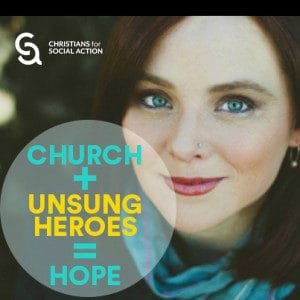
7 Responses
Sounds like a good program. Hopefully, it can serve as a model for others.
I really liked the idea of having different types of caretakers communicate with each other. I’ve read articles and watched videos that talk about hospitals, and sometimes, the different doctors don’t even talk to each other about their patients. Communication is an important part of working together, so having a holistic hospital with more than just “normal” healthcare sounds like an amazing idea to me. This program is helping people restore not just their health, but their faith, and my faith in humanity is being restored as well.
“It all comes from a conviction that as believers, it is our call, from Jesus, that we take care of people,” Andreana continues. “We heal the sick. Not only physically, but spiritually and mentally. We walk alongside people to make sure that they’re okay. We believe this is what we are called to do.”
I have not seen a model that lives out this quote so beautifully. Well done, Church Health! And well done, ESA, for bringing attention to this organization and what seems to be a sustainable and reproducible model!
Oh, I love this. Thank you so much for the introduction to such an inspiring organization. I especially appreciate the reminder that food and nutrition don’t have to be as complicated as we sometimes make them out to be. What would Jesus eat? He would eat fresh, locally-grown foods in community! Wonderful.
I go to the Church Health center and they take care of me. Dr. Jennings makes sure I have my medicine on time and that I know how to eat right. The staff are all so kind and caring. When I get a bill I bring it to Ms. Stacy and she always takes care of it. I’ve even been to see Dr. Morris when I was really sick and couldn’t get an appointment that day. I went through the urgent care and he fixed me right up. The Church Health center is a real beacon of good and they really care for you.
As I was reading this beautifully written article, I couldn’t help but think, “we need more of this around the country.” This model is not only Biblical, but brilliant. The concept of many professionals coming together to help the whole person is appealing and appropriate. Everyone has a part to play, let them do what they are skilled to do, and allow the recipient to benefit from he care they receive. Elrena, beautifully written article, what a wonderful concept I hope to see increase in the years to come.
Healing is mind body and soul. God has already blessed this man and this man blesses God’s children. What a perfect world that is filled with love and compassion. To bad it can’t be bottled…… or can it be? Thanks be to God